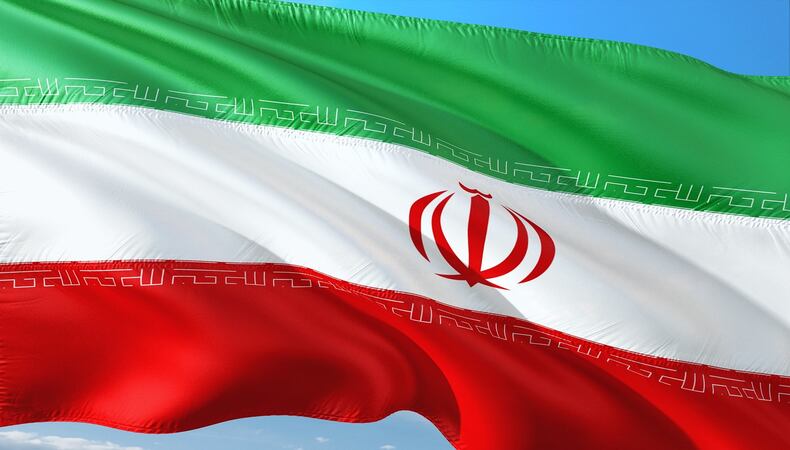Iran Faces New Sanctions from U.S. and Europe for Allegedly Supplying Missiles to Russia

According to a Wall Street Journal Friday article, Iran is set to be slammed with further sanctions from the U.S. and Europe following allegedly supplying short-range ballistic missiles to Russia. According to the article, which included unidentified U.S. and European officials, Tehran has continued armaments exports in spite of Western nations’ cautions not to grant Moscow military support.
The Missile Delivery to Russia
Particularly in light of continuous international worries over Moscow’s engagement in the Ukraine crisis, the U.S. and Europe had already advised Iran against delivering missiles to Russia. A U.S. official verified to the Wall Street Journal, nevertheless, that the missiles’ delivery “has finally been completed.” Western intelligence agencies claim that this cargo comprised several hundred short-range ballistic missiles. As Russia keeps running operations in Ukraine, these missiles are supposed to increase its military capability.
It is yet unknown exactly the specifics of the missile consignment, including the type and specs. But the use of such sophisticated weaponry has caused concerns in Washington and European capitals; officials worry that Iran’s military support could intensify the fighting.
Denial of Allegations: Iran
Iranian officials refuted claims in the article that they had given Russia any ballistic missiles. Tehran has often denied claims of direct military involvement in the Ukraine crisis, insisting that its defense relations with Russia are just for defensive needs. Iranian Foreign Ministry officials reaffirmed that the nation does not provide missiles for use in outside conflicts, therefore calling the assertions as baseless.
Western authorities remain dubious in spite of these denials, citing mounting proof of Iran’s rising military cooperation with Moscow. Reports of Iran providing drones to Russia, which have been utilized in strikes on Ukrainian targets, have also emerged in past months.
European and American Reaction: Further Horizon Sanctions
European officials stated on Friday following the disclosure of Iran’s missile sale to Russia that they are working with the United States to create a cohesive reaction. Sources indicate that this reaction will probably consist in imposing more penalties on Tehran, focusing on important people and companies engaged in the missile manufacturing and export.
The penalties are supposed to impact Iran’s defense industry and limit its capacity to engage in world arms markets. This action would further isolate the nation economically, aggravating the already severe penalties applied on Tehran over its nuclear operations and violations of human rights.
U.S. officials have also expressed their annoyance with Iran’s ongoing disobedience of international warnings, suggesting they will try to apply the penalties as quickly as feasible. Apart from aiming at Iran’s military trade, the fresh sanctions might also cover other spheres of Iranian economy, which has already suffered greatly from past rounds of American and European penalties.
Russia’s Response and Consequences for the Ukraine Conflict
Although the Iranian government has refuted the missile shipments, the Russian Embassy in Washington has not yet responded formally to the Wall Street Journal’s story. Russia has historically minimized assertions of acquiring weapons from Iran, even if data of Iranian drones used in Ukraine is hard to overlook.
The arrival of Iranian ballistic missiles into the Ukraine conflict might have major consequences for the current fighting. Using ballistic missiles could perhaps change the dynamics of warfare in some locations since they can reach targets far more distances than traditional artillery. If ballistic missile strikes were brought into the mix, Ukrainian forces—who already were fighting Russian troops and handling drone attacks—would be even more threatened.
The world community has denounced Russia’s invasion of Ukraine, and the inclusion of advanced missile systems from Iran might aggravate already tense relations between Moscow and the West. This escalation coincides with diplomatic attempts to resolve the crisis mostly failing, with both sides ready for ongoing warfare.
An Irani International Relations New Chapter
Alleged missile delivery from Iran to Russia represents yet another turning point in the tense relations between Tehran and Western countries. Iran’s suspected role in arming Russia might have long-lasting effects for its diplomatic position, already subject to international criticism for its nuclear activities and human rights record.
The U.S. and European new sanctions in preparation might cause Iran to become more isolated and make it more challenging for the nation to interact with world markets or pursue international alliances. Tehran has been under increasing pressure from Western governments, hence it has been trying to increase its ties in recent years, especially with China and Russia.
But this most recent action could compromise those initiatives, particularly if Moscow’s use of Iranian ballistic missiles causes further international community attention. Iran’s actions could have far-reaching effects on its home economy as well as on its position on the international scene as the circumstances develops.
The claimed delivery of Iranian short-range ballistic missiles to Russia has prepared the ground for another round of U.S. and European sanctions directed against Tehran. Iran denies the claims, but Western authorities are adamant about making Iran answerable for its military support of Russia in view of the continuing crisis in Ukraine. The situation emphasizes the increasing complexity of the geopolitical scene surrounding the Ukraine war and Iran’s involvement in international affairs as both parties get ready for additional diplomatic and financial consequences.




